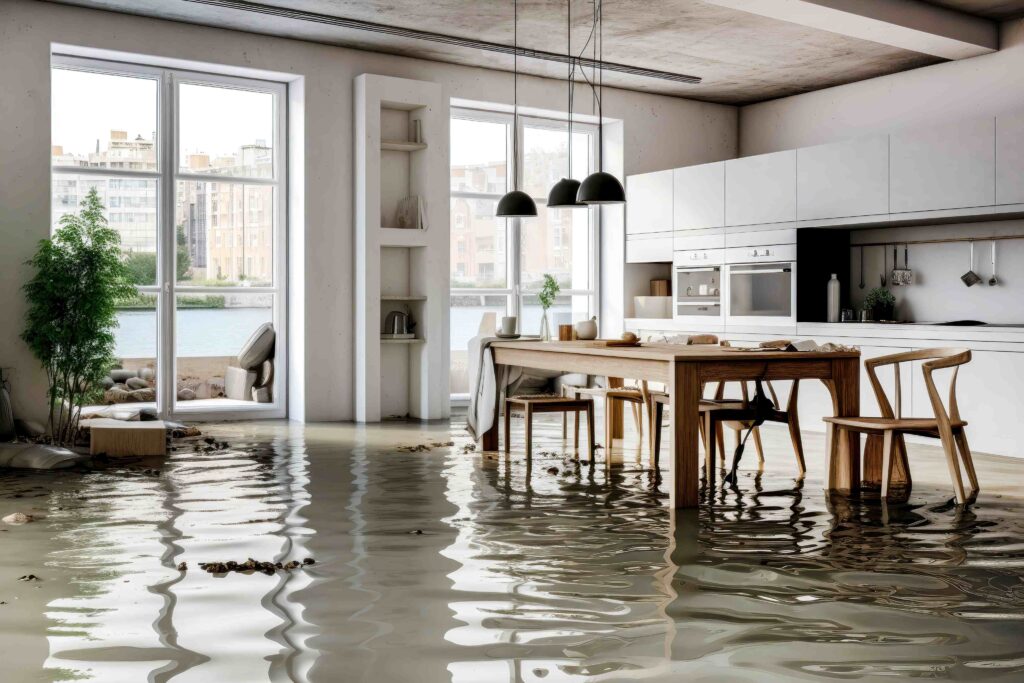
Choosing Between Private Flood Markets & National Flood Insurance Program (NFIP)
When a hurricane threatens the nation, we often observe that our clients begin to inquire about ways to guard against loss in the event that a storm was to impact them. We understand completely. It is a terrifying sight, and if you imagine yourself in their position even for a moment, you would ask your insurance specialist right away, “What can we do to preserve our livelihoods should something like this happen to us?”
It’s a fantastic question, and even though there might not be an easy way to deal with the difficult emotions that come with dealing with a major storm’s aftermath. We can assist with the financial aspect of it to help you get back to normal and be prepared to move forward.
Storm damage typically results from one of a few causes. Wind, lighting, and flooding. The one we would like to cover today is the flooding aspect. Generally speaking, flooding is not covered under your standard home policy, so you must seek an additional policy to protect yourself against this specific peril. While a majority of flood policies are written through the government-backed National Flood Insurance Program (NFIP), there are other options out there to consider. These options fall into a category called Private Flood Markets. What we would like to do here is help give an overview of each option to provide clarity on the advantages (and potential disadvantages) of each.
National Flood Insurance Program (NFIP):
The federal government created the NFIP in 1968 to offer flood insurance and set rules for floodplains in towns and cities across the nation. The NFIP currently offers around 90- 95% of the residential flood insurance in the United States.
While the policies are federally backed, you would purchase a policy from your insurance agent/ carrier through a “write your own” program. This allows insurance companies to write and service an NFIP flood policy using their name. In a majority of cases, your homeowners’ insurance provider has an NFIP option available for you to purchase.
Having a federally backed policy certainly has its advantages with the overall availability of the product and the financial aspect of solvency. However, there is a potential disadvantage to these policies. That would be the available coverage within the policy and its limits. The NFIP will only provide coverage for Your dwelling and personal property.
Coverage for Dwelling: Pays to fix damage from flooding to your house or garage (basements are a whole different topic!). For residential property, the maximum dwelling coverage limits are set at $250,000, which can be troublesome with rapidly increasing costs.
Coverage for Personal Property: pays to fix or replace your belongings, including furniture, electronics, and appliances, that have been destroyed by flooding. $100,000 is the maximum personal property coverage limit you can obtain on an NFIP policy.
Private Flood Insurance Markets:
Rising In popularity is the private flood insurance market. Without the same restrictions, the government-backed NFIP has. Private flood insurers have the opportunity to offer higher coverage limits and potentially additional coverages that are not included in an NFIP policy. One coverage that comes to mind would be “additional living expenses” which would help pay for your stay in a hotel or your meals if your home was damaged in a flood. Another big one would be coverage for your personal property in your basement. Also, since the NFIP has a maximum dwelling coverage of $250,000, the private flood market is another option that may be more advantageous for more expensive residences.
Most independent insurance agencies will have a private flood insurance option available for you, and it is certainly worth exploring and having a conversation with your insurance professional about it. However, the private market doesn’t come without its potential drawbacks. The main one is availability. While the NFIP is available pretty much everywhere you may have a difficult time finding a private flood market in exceptionally high-risk flood areas. Another disadvantage we have witnessed is that with private flood policies, there tend to be much higher deductible options, so if you are seeking a lower deductible you may not find one in the private market.
Having a knowledgeable expert at your side to explain the many options and offer advice is crucial when looking into flood insurance. Being informed while selecting a policy can make all the difference between a little setback and a disastrous financial situation. Any of our flood insurance professionals at The Staples Agency would be honored to assist you when you are ready to discuss safeguarding your family in the case of a flood.

